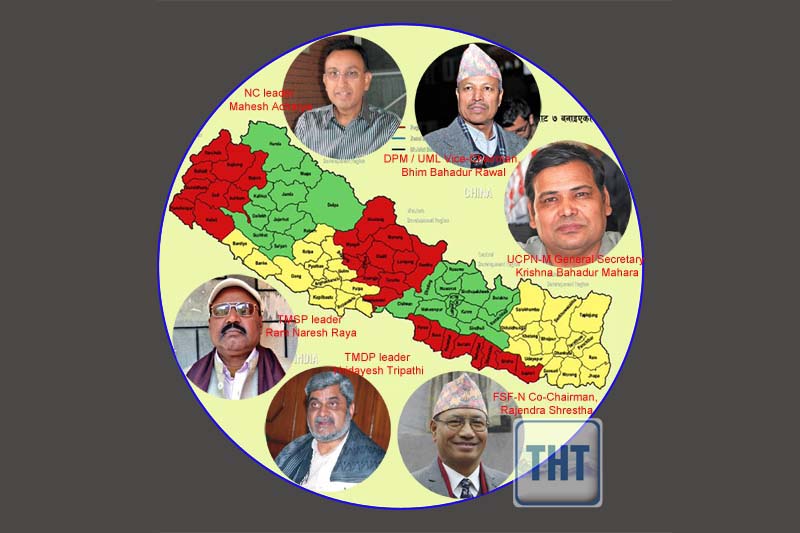Deal on ToR of political mechanism elusive
Kathmandu, February 18
Talks between the task forces of the three major parties and the agitating United Democratic Madhesi Front on the terms of reference for a political mechanism to revise the provincial boundaries failed to break ice.
Co-chair of Sadbhawana Party Laxman Lal Karna, a member of the UDMF taskforce, said representatives of Nepali Congress and Unified CPN-Maoist had almost agreed to state in the ToR that the boundaries and the number of provinces would be revised on the basis of the reports of the erstwhile Restructuring Commission, thematic committee of the first Constituent Assembly and the Constitutional Political Dialogue and Consensus Committee (CPDCC) of the second CA, but the CPN-UML representative did not agree.
Karna said UML representative Deputy Prime Minister and Defence Minister Bhim Bahadur Rawal only wanted to state in the ToR that the movement would serve as a basis for revision of provincial boundaries and not the reports of the erstwhile SRC and thematic committee of the first CA.
According to Karna, the major parties had agreed to the UDMF proposal that the decision to form a political mechanism should be taken by the same meeting of the Cabinet, which would also decide to withdraw cases against UDMF cadres in Mahottari and form a judicial commission to investigate the killings that took place during protests.
“But now as we could not agree on the ToR of the political mechanism to be formed, I don’t know how the government will treat other issues that it had already agreed to,” Karna added.
Representative of Tarai Madhes Sadbhawana Party-Nepal Ram Naresh Ray said the two task forces failed to seal a deal today mainly because the government was just trying to give an impression to the international community that it was doing something to address the Madhes movement.
In reality, however, it was not serious at all about seeking a negotiated settlement. “We want two provinces in Madhes as stated in the reports of the SRC and thematic committee of the first CA, but the government is not committed to honouring those reports,” Ray said, adding that if Prime Minister KP Sharma Oli visited India without addressing the domestic problems, his visit might not be given the priority it ought to deserve.
Ray said the UDMF had changed its extreme forms of protest keeping in mind people’s suggestions, but if the government kept treating UDMF like this, it would have no option but to resort to extreme forms of protest again. “We are conserving our energy and will revert to agitation soon,” he warned.
NC negotiator Mahesh Acharya said he personally believed that a negotiated settlement was possible. “I have told the government that it would be good if the prime minister embarked on his India visit after addressing Madhes issues,” he said, adding that it was possible to mention in the ToR that provincial boundaries of Tarai Madhes and other regions would be revised on the basis of the reports of the erstwhile SRC, thematic committee of the first CA and the report of the CPDCC.
“People of Madhes want revision of provincial boundaries, which will also have an impact on the hills. We need to look into things liberally to find a negotiated settlement,” Acharya added.






